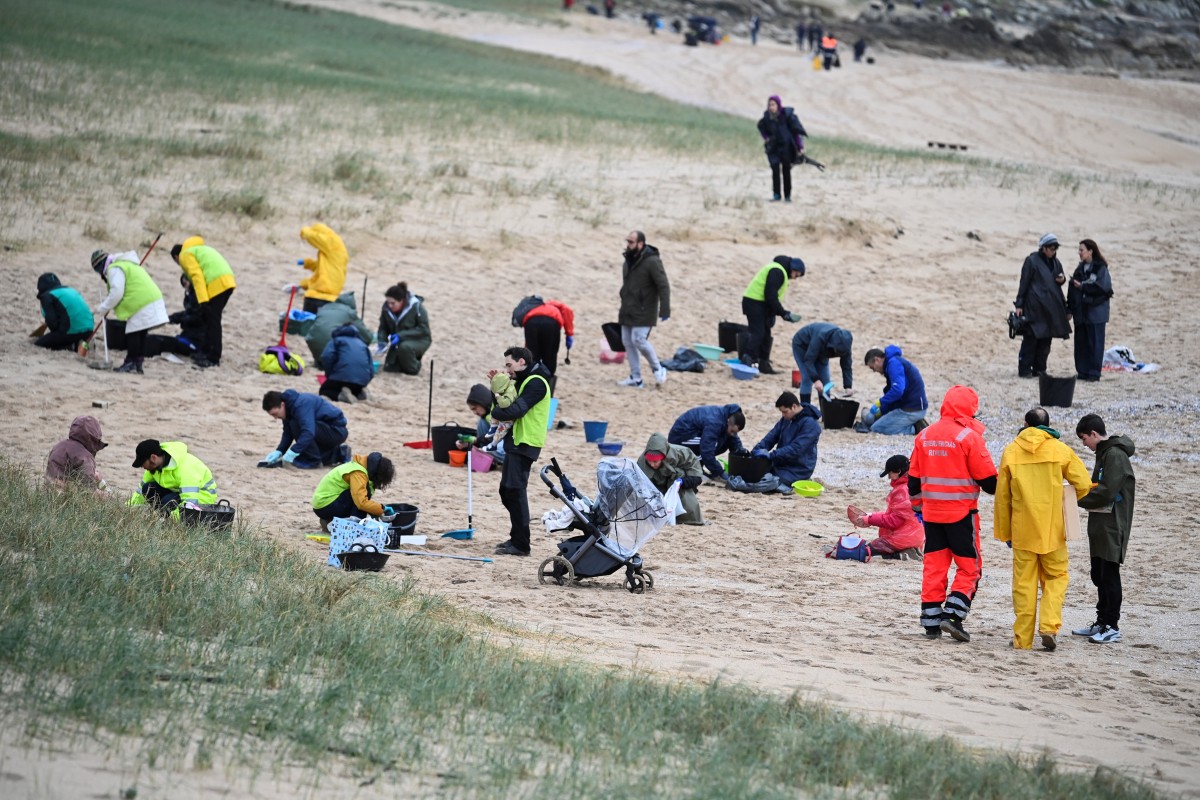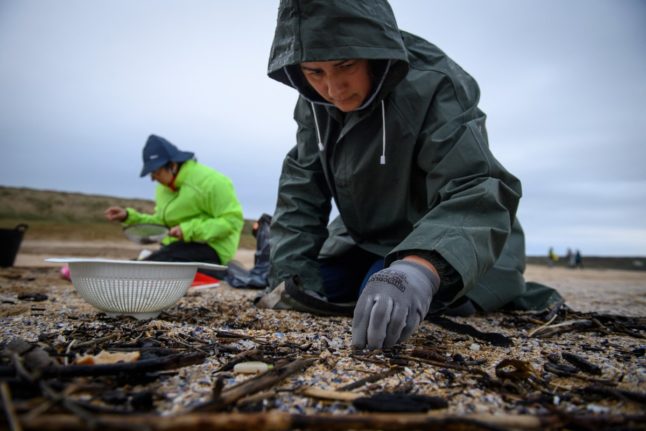Millions of the pellets – also called “nurdles” – arrived on the coastline of Spain’s Galicia region in December and January after the containers they were in fell overboard from a Liberia-registered ship on December 8.
The pellets are widely used by industry, which melts them down to make plastic products ranging from bottles to car bumpers to salad bowls.
But the spill endangered wildlife as fish and birds gobbled the granules, which can then also find their way into human food chains.
Hundreds of Spanish volunteers have combed Galicia’s beaches to try to recover as many of the pellets as possible, while prosecutors have opened an investigation.
READ MORE: Millions of plastic pellets are spreading across Spain’s northern coast
In the European Parliament on Thursday, left-wing Spanish lawmakers criticised as “incompetent” the conservative Popular Party (PP), which is in opposition in Spain’s national parliament but in power regionally in Galicia.
Two Spanish MEPs, Nicolas Gonzalez Casares and Idoia Villanueva Ruiz, called for “reinforced EU legislation” to address the problem of plastic pollution.
A conservative MEP from the EPP grouping that includes the PP, Dolors Montserrat, hit back, accusing the left-wingers of “political opportunism” ahead of Galician regional elections in a month’s time.

The EU environment commissioner Virginijus Sinkevicius stepped into the debate, saying that while such spills are “occasional”, they raise public concern and have a localised impact.
“So the need for action is clear,” he said, adding that the European Commission already put forward three months ago a proposal aimed at preventing hard-to-recover plastic pellets from entering the environment.
The commission is working with the International Maritime Organization on the issue and, if that UN agency so decided, Brussels could adopt further measures possibly including a ban on transporting pellets in the main body of ships, Sinkevicius said.



 Please whitelist us to continue reading.
Please whitelist us to continue reading.
Member comments